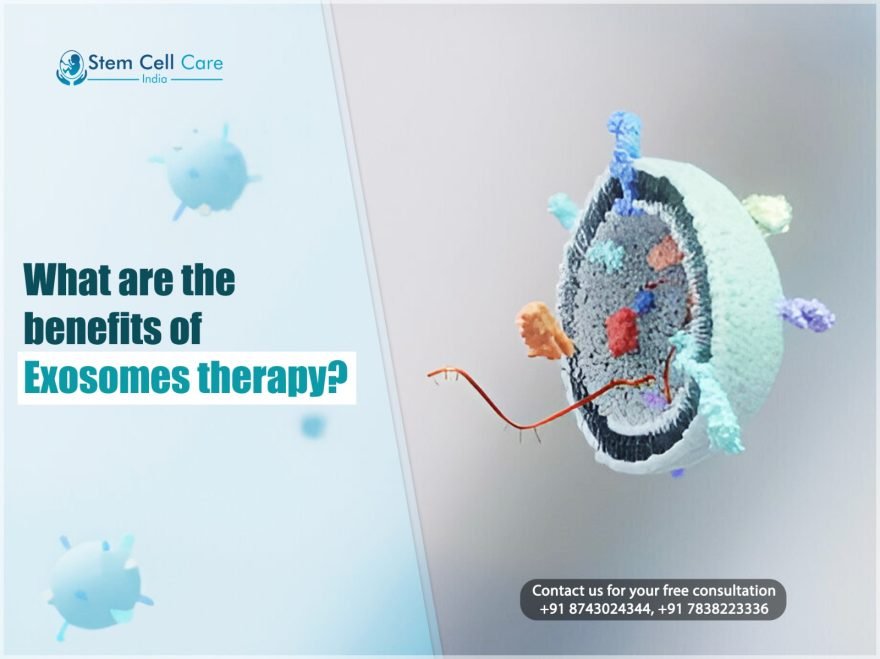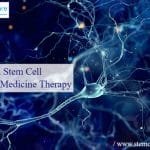Exosome therapy is now rapidly gaining more recognition as a revolutionary medicine. Exosomes are minuscule extracellular vesicles that are crucial for intercellular communication. They can carry proteins, lipids, and genetic material from one cell to another. This is a novel therapy that leverages the natural properties of exosomes to promote healing, minimize inflammation, and improve tissue regeneration. Let’s explore the benefits of exosome therapy and its potential treatment for various medical fields.
Understanding Exosomes
An exosome is a nano-sized particle (30-150 nanometers) released by nearly all cell types. They are involved in a variety of physiological processes, including immune response, cellular waste management, and tissue repair.
Exosomes contain bioactive molecules such as:
- Proteins: They contain proteins like enzymes, growth factors, and signaling molecules.
- Lipids: It is important for membrane structure and signaling.
- mRNA and miRNA: Some genetic material that can influence the behavior of recipient cells.
Through the transfer of these bioactive molecules to target cells, exosomes can modulate cellular functions and promote healing, thereby offering therapeutic potential.
Benefits of Exosome Therapy
- Enhanced Tissue Repair & Regeneration
The main benefit of exosome therapy is its ability to enhance tissue repair and regeneration. Exosomes derived from stem cells, solely mesenchymal stem cells (MSCs), are rich in growth elements and signaling molecules that can stimulate the repair of damaged tissues.
This can make exosome therapy a promising treatment for conditions like:
- Wound Healing: These exosomes can rev the healing process by promoting cell proliferation and migration, collagen synthesis, and angiogenesis (formation of new blood vessels).
- Orthopedic Injuries: This therapy can aid in the repair of cartilage, bone, and tendon injuries, potentially providing relief for conditions such as osteoarthritis and tendonitis.
- Anti-inflammatory Effects
Exomes have anti-inflammatory properties, making them an attractive option for treating inflammatory conditions. They can modulate immune responses and minimize chronic inflammation, which is a main factor in many diseases
Some benefits:
- Autoimmune Disease: This therapy can help manage autoimmune disease by minimizing the overactive immune response and promoting immune patience.
- Severe Inflammatory Conditions: Some conditions such as rheumatoid arthritis, inflammatory bowel disease, and chronic obstructive pulmonary disease may benefit from the inflammatory effect of exosomes.
- Neuroprotection & Neurogeneration
This exosome treatment has demonstrated promise in neuroprotection and neuroregeneration, providing potential benefits for neurological disorders. Exosomes can surpass the blood barrier and deliver therapeutics directly to the brain.
Potential applications, such as:
- Neurodegenerative Diseases: Exosomes can help manage conditions like Alzheimer’s disease, Parkinson’s disease, and amyotrophic lateral sclerosis (ALS) by minimizing neuroinflammation and promoting neuronal survival.
- Traumatic Brain Injury (TBI): Exosome therapy can aid in the recovery from traumatic brain injury by minimizing inflammation and promoting the repair of damaged neural tissue.
- Anti-Aging and Skin Rejuvenation
Exosome therapy is renowned for its anti-aging and skin rejuvenation benefits. Exosomes can improve skin health by promoting collagen synthesis, minimizing inflammation, and enhancing skin texture and elasticity.
- Wrinkle Reduction: This therapy can reduce the occurrence of fine lines and wrinkles by stimulating collagen production and skin cell renewal.
- Skin Repair: This therapy can help in repairing damaged skin, reducing scars, and improving skin tone and texture.
- Cancer Treatment
This therapy holds the potential for cancer treatment, solely by improving the efficacy of existing therapies and delivering targeted treatments. Exosomes can be tailored to carry anti-cancer drugs, genes, or immune modulators directly to cancer cells, improving results. Some benefits include:
- Targeted Drug Delivery: Exosomes can deliver chemotherapeutic elements directly to tumor cells, minimizing side effects and enhancing the therapeutic index.
- Immune Modulation: This can also enhance the body’s immune system against cancer cells, potentially improving the effectiveness of immunotherapy.
- Cardiovascular Health
This therapy is showing some promising results in promoting cardiovascular health and treating heart diseases. Exosomes can improve the repair and regeneration of heart tissue, minimize inflammation, and improve vascular health. Benefits are:
- Heart Disease: This exosome therapy can aid in the recovery from myocardial infarction of heart tissue and improve heart function.
- Vascular Health: It can also improve vascular health by promoting the repair of damaged blood vessels and reducing atherosclerosis.
Current Research & Future Directions
The capabilities of exosome therapy are supported by continuous research and clinical trials exploring its efficacy and safety. Some favorable areas of study, such as:
- Exosome Isolation & Purification
Tailoring standardized techniques for isolating and purifying exosomes to ensure consistent and effective therapeutic results.
- Exosome Engineering
Improving the therapeutic potential of exosomes by engineering them to carry specific therapeutic agents or target specific cells.
- Clinical Trials
It conducts rigorous clinical trials to establish the safety, efficacy, and optimal dosing of exosome therapy for a variety of conditions.
Final Verdict
Exosome therapy represents a significant innovation in regenerative medicine, providing numerous benefits across a vast range of medical fields. From enhanced tissue repair and anti-inflammatory effects to neuroprotection and anti-aging benefits, exosome therapy holds immense capabilities to improve health outcomes and the quality of modern medicine, offering an innovative solution for some of the most severe medical conditions. If you want to learn more about exosome therapy, consulting with Stem Cell Care India would be helpful.







